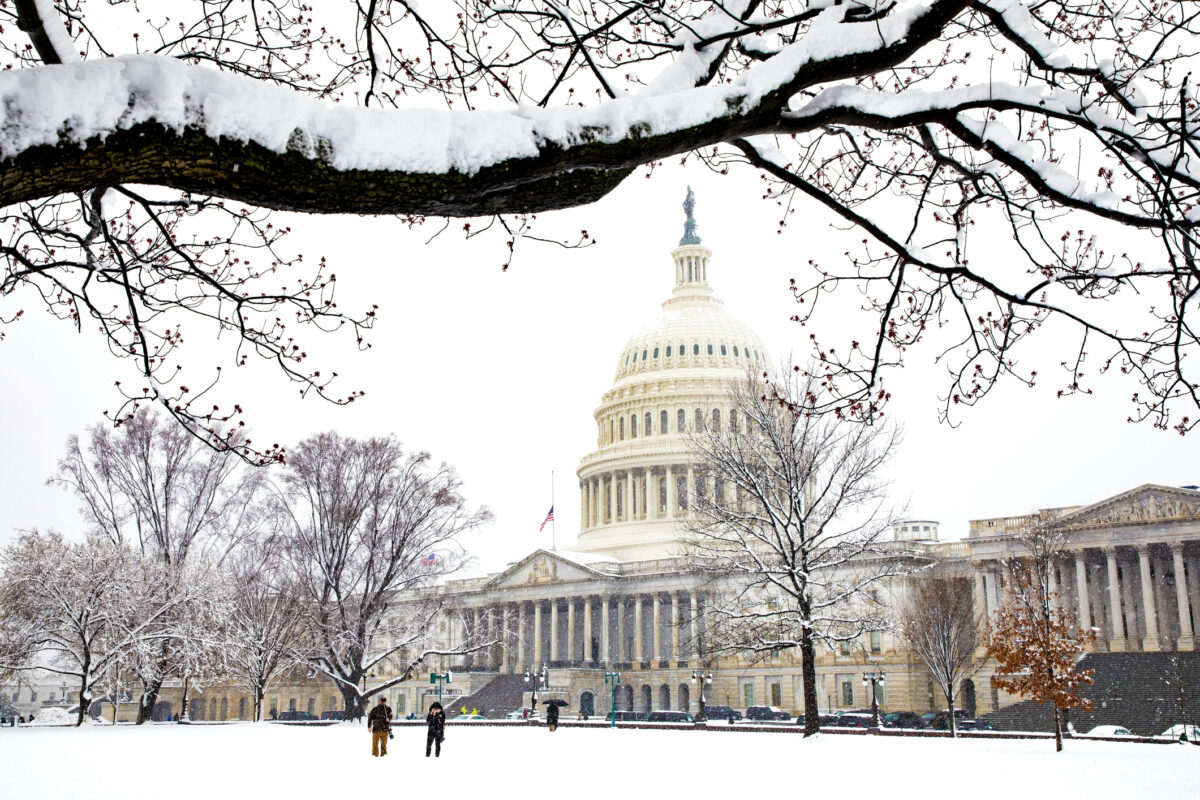Postsecondary Data Collaborative and Workforce Data Quality Campaign Applaud Bipartisan, Bicameral College Transparency Act
Published May 23, 2017
Editor’s Note: As of October 31, 2017 more than 130 organizations have signed the below statement in support of the College Transparency Act of 2017.
Over 70 organizations have signed the following statement in support of the recent higher education transparency legislation, the College Transparency Act of 2017. To add your organization to this listing, please click here.
“The Postsecondary Data Collaborative (PostsecData) and the Workforce Data Quality Campaign (WDQC), in cooperation with the undersigned organizations and individuals, applaud Senators Hatch (R-UT), Warren (D-MA), Cassidy (R-LA), and Whitehouse (D-RI) and Representatives Mitchell (R-MI), Polis (D-CO), Garrett (R-VA), Krishnamoorthi (D-IL), Stivers (R-OH), Panetta (D-CA), Dunn (R-FL), and Upton (R-MI) for championing transparency through their introduction of the College Transparency Act, which would create a secure, privacy-protected postsecondary data system. Supported by four members of the Senate Committee on Health, Education, Labor and Pensions and two members of the House Committee on Education and the Workforce, this bipartisan bill would help students, policymakers, and institutions to make informed choices by providing better information about college access, success, costs, and outcomes.
“The research is abundantly clear: Investing in a college education pays off.[1] But while college is worth it on average, students, policymakers, and institutions cannot answer crucial questions about which postsecondary programs provide an adequate return on investment for which students. Students and taxpayers have a right to know what they can expect in return for their college investment. Yet, existing policies prevent us from answering basic questions, such as:
- How many low-income, adult, transfer, and part-time students earn a postsecondary certificate or degree from a particular institution?
- How much do students borrow, and can they repay their loans?
- How long does it take students to complete college, on average?
- How many non-completers from a particular college never reenroll, and how many transfer to finish their degree at another institution?
- Do students go on to succeed in the workforce?
“Answers to these questions would help students and families choose programs that demonstrate strong outcomes, while helping policymakers and educators to implement policies and practices that help more students succeed. For the marketplace to function effectively, all these stakeholders need access to high-quality information that reflects all types of students and can look at outcomes across state lines. The federal government—with its access to existing data, including on employment and earnings—is uniquely positioned to compile that information, while reducing institutional reporting burden.
“The College Transparency Act would reform federal policy to create a secure, privacy-protected postsecondary data system that would:
- Empower all students to make more informed choices about where to spend their precious time and money,
- Only be used to help students,
- Protect student privacy and adhere to best practices in data security,
- Reduce reporting burden for colleges and universities by replacing the student components of the Integrated Postsecondary Education Data System (IPEDS),
- Better steward taxpayer dollars,
- Uncover equity gaps so colleges and universities can change policies and practices to better serve underrepresented students, and
- Align education with labor market demand and help employers identify programs that are effectively preparing students for the workforce.
“The bill is laser-focused on protecting students’ privacy. It includes protections that limit data disclosures, prohibit the sale of data, penalize illegal data use, protect vulnerable students, prohibit use of the data for law enforcement, and safeguard personally identifiable information.
“The College Transparency Act represents broad consensus among students, colleges and universities, employers, and policymakers that a secure, privacy-protected postsecondary student data system is the only way to give students the information they need to make informed college choices. It builds upon previous bipartisan, bicameral efforts to strengthen national data systems through the Student Right to Know Before You Go Act. We urge policymakers to pass legislation to create a postsecondary data system that gives the right people the right information to make the best possible decisions about higher education.”
AccessLex Institute
Achieve Atlanta
Achieving the Dream
Advance CTE
AdvancED
Alloy Engineering Co. Inc.
America Forward
American Association of Community Colleges
American Educational Research Association
Arizona Office of Economic Opportunity
Asian & Pacific Islander American Scholarship Fund
Aspen Institute College Excellence Program
Association for Career and Technical Education
Association of Community College Trustees
Association for Manufacturing Technology
Association of Public and Land-grant Universities
Association of Public Data Users
Atlanta Regional Workforce Development Board
Boston Centerless
Bottom Line
California EDGE Coalition
California State Student Association (CSSA)
Campaign for College Opportunity
Center for American Progress
Center for Law and Social Policy (CLASP)
Chicago Citywide Literacy Coalition
Chiefs for Change
Cobb Chamber of Commerce
College Now Greater Cleveland
Colorado Center on Law and Policy
Community Foundation for Greater Atlanta
Council for Adult and Experiential Learning
Connecticut Association for Human Services
Connecticut State Colleges and Universities
Custom Plastics and More
CWA Southern California Council
Dallas County Community College District
Data Quality Campaign
Deans for Impact
Democrats for Education Reform
ECPI University
Edmit
Excelencia in Education
Five Star Development, Inc.
Georgetown University Center on Education and the Workforce
Georgia Association for Career and Technical Education
Georgia Department of Education
Georgia State University Student Government Association
Global Resource Management, Inc. (GRMI)
Greater North Fulton Chamber of Commerce
Greater Philadelphia Healthcare Partnership
GW Institute of Public Policy, George Washington University
Holder Construction Company
Indiana Institute for Working Families
Institute for Higher Education Policy (IHEP)
James Rutter, CEO RQECG Inc.
Jersey City Literacy Program
JEVS Human Services
JMPDX LLC
Jobs For the Future
Jordan Matsudaira, Assistant Professor Cornell University
Knowledge Alliance
LeaderQuest Holdings Inc.
Learn4Life
Lehman College of The City University of New York
Louisiana State University
Mahoning Valley Manufacturers Coalition
MCCI Medical Group
Metro Atlanta Chamber
Muslim Student Association – West
NASPA – Student Affairs Administrators in Higher Education
National Higher Education Benchmarking Institute
National Association for College Admission Counseling
National Association of Graduate-Professional Students
National Association of Student Financial Aid Administrators
National Council for Adult Learning
National Council for Workforce Education
National Laboratory for Education Transformation
National Skills Coalition
Naugatuck Adult Education
New America
New Growth Group, LLC
New York Association of Training & Employment Professionals (NYATEP)
Nexus Research and Policy Center
NOCTI
Nucleos-PortableCloud
Office of Institutional Research & Planning, The Ohio State University
Optimax Systems Inc.
Orleans Technical College
Partners for a Competitive Workforce
Partnership for College Completion
Perfection Spring & Stamping Corp.
Policy Matters Ohio
Postsecondary Analytics
ProLiteracy
Public Insight Corporation
Ready To Work Business Collaborative
Rebuilding America’s Middle Class
Results for America
Richards Industries
Sargent Shriver National Center on Poverty Law
Scholarship America
Skills2Compete Colorado
SkillWorks
Software & Information Industry Association
South Asian Fund for Education, Scholarship and Training (SAFEST)
Southwest Ohio Region Workforce Investment Board
Stephen L. DesJardins, Professor, University of Michigan
StriveTogether
Student Veterans of America
Teamlogic IT – NYC
The Bell Policy Center
The Education Trust
The Institute for College Access & Success (TICAS)
The State University of New York
Third Way
Towards Employment
TRC Staffing Services
Transportation Learning Center
Tulsa Regional Chamber
uAspire
UNCF
United Way of Greater Atlanta
Urban Alliance
U.S. Chamber of Commerce
Vermont Adult Learning
Veterans Education Success
Virginia Community College System
Welcoming Center for New Pennsylvanians
WKBJ Foundation
Women Employed
Workforce Data Quality Campaign
Workforce Solutions Group
Workforce Tulsa
World Education Services
WSP USA
Wyoming Machine, Inc.
Young Invincibles
[1] College Board, Education Pays 2016, https://trends.collegeboard.org/sites/default/files/education-pays-2016-full-report.pdf


